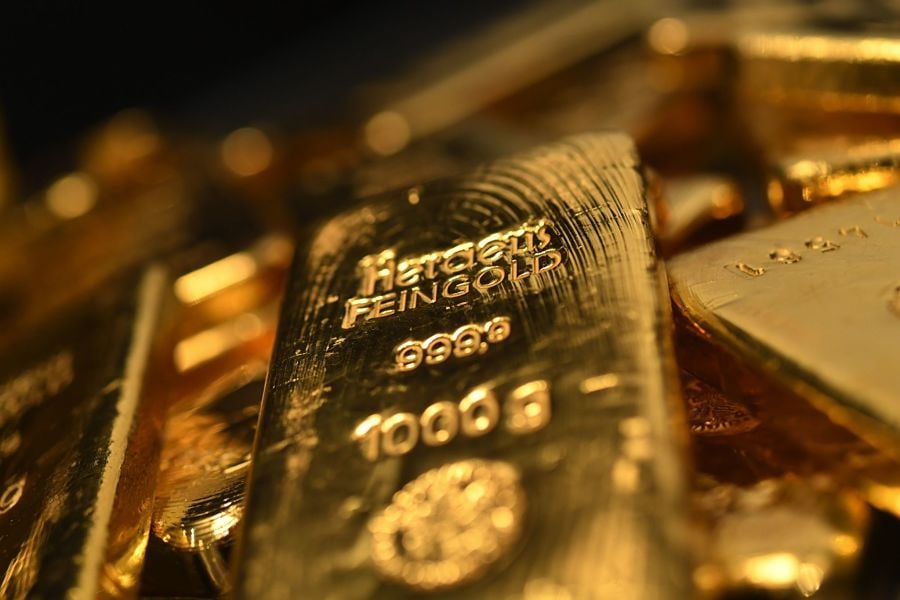

Gold has been a bright spot in client portfolios so far in 2023, rising more than 10% and offering investors something tangible – even in ETF form - in an increasingly uncertain geopolitical environment.
So should financial advisors go for the gold again in 2024?
“I’m bullish on gold in 2024 for several reasons, including stubborn inflation, geopolitical tensions and conflicts, and the Fed near, or potentially at the end, of its hiking schedule,” said Eric Sterner, chief investment officer at Apollon Wealth.
Another tailwind for gold, Sterner said, is a potential global economic slowdown as a result of central banks around the world having aggressively hiked interest rates over the past 18 months. While many strategists are debating whether there will be a recession or a soft landing in 2024, he says it’s worth noting that gold has averaged 20.19% returns during the past seven U.S. recessions.
“Once the Fed initiates rate cuts, the U.S. dollar will most likely depreciate, which, in turn, could be yet another tailwind for gold,” Sterner added.
On the other hand, Cyrus Amini, chief investment officer at Helium Advisors, is not seeing such powerful tailwinds, which is why his outlook for gold in 2024 is neutral.
“We include a strategic allocation to gold in most of our client portfolios. Position sizes vary, but are typically between 2% and 5%,” Amini said. “Utilizing liquid ETFs to establish the gold position is typically the most effective method. For most investors, holding or trading physical gold is inefficient versus the alternatives.”
Eric Beyrich, co-chief investment officer of Sound Income Group, meanwhile, expects gold prices to be stable to higher in 2024 as interest rates fall and global uncertainty remains elevated.
Not that it matters much because Beyrich only invests in income-generating securities, and gold doesn't fit that bill.
“Gold has generally underperformed stocks and bonds, except during the times of unusual distress, or after the Bretton Woods Accord, when the United States officially went off the gold standard in the early 1970s,” he said.
Joe Cavatoni, chief market strategist for the World Gold Council, says extensive global central bank gold purchases, along with increased certainty on the direction of interest rates, portend an even bigger year for gold in 2024.
“The strong demand that we've seen from central banks has given us a very solid floor of about $1,850 on the price. That's been exceptional for the overall performance of gold and that's going to continue to be a trend that we expect to see into 2024,” he said.
And it’s not just central banks underpinning gold prices, Cavatoni said. It’s also retail demand, especially in India, which recently posted a 7% rise in third-quarter jewelry sales despite higher prices.
“We've had two quarters in 2023 that have been very strong in the U.S., but in India and in China, you also see that retail demand coming on strong,” he said.
Cavatoni doesn't see bitcoin stealing market share from gold — or at least the evidence hasn't shown that to be the fact yet, in his view.
“We don't have any evidence to see that this is something that's taking away from the market. What we see mainly are large institutions like central banks having a definite demand for gold, institutional investors looking for clarity on the monetary side before they make their move back into gold, and retail using it when they need it, and actually continuing to pick it up,” he said.
Nor does Helium Advisors’ Amini see bitcoin acting as a substitute for gold.
“Bitcoin has too much price volatility and doesn't appear to be a true store of value,” he said. “While gold prices fluctuate over time and especially in recent rallies, it has historically proven to be a store of value and a haven for investors.
Meanwhile, Sterner and Beyrich are watching bitcoin from afar. And one much further than the other.
“While I’m keeping a very close eye on bitcoin, I would not recommend it as a substitute for gold as the cryptocurrency space has experienced tremendous turmoil over the past year,” Sterner said. “I believe more regulation should be developed and implemented to oversee cryptocurrencies before I would recommend those investments in any client portfolio.”
Said Beyrich: “Bitcoin does not have any intrinsic value. In fact, there is a cost to maintaining it and a risk of loss that exceeds that of many other assets that people often view as stores of value. So, it is not a substitute for gold, or even cash, on a practical level. Rather, we view it as a speculative digital creation that appreciates or depreciates based on supply and demand dynamics.”

Relationships are key to our business but advisors are often slow to engage in specific activities designed to foster them.

Whichever path you go down, act now while you're still in control.

Pro-bitcoin professionals, however, say the cryptocurrency has ushered in change.

“LPL has evolved significantly over the last decade and still wants to scale up,” says one industry executive.

Survey findings from the Nationwide Retirement Institute offers pearls of planning wisdom from 60- to 65-year-olds, as well as insights into concerns.
Streamline your outreach with Aidentified's AI-driven solutions
This season’s market volatility: Positioning for rate relief, income growth and the AI rebound
